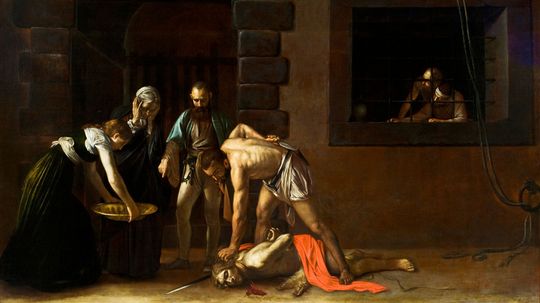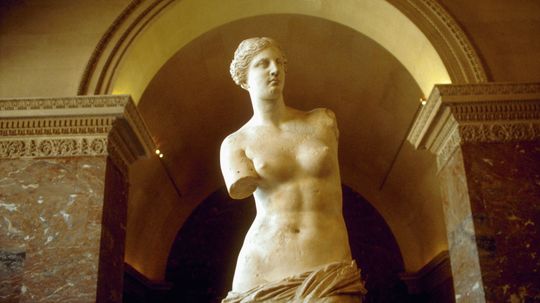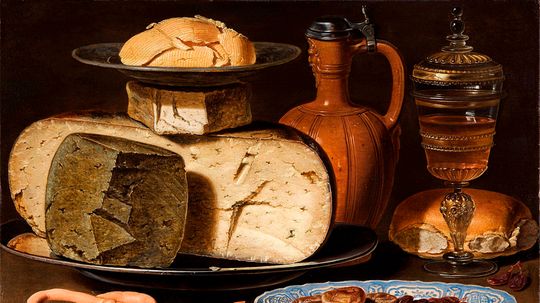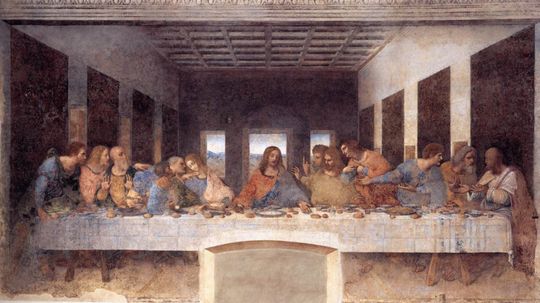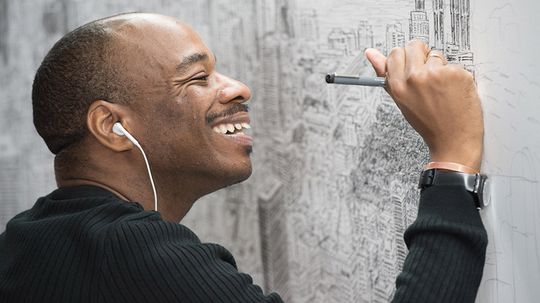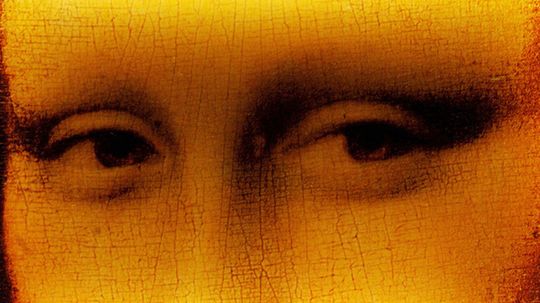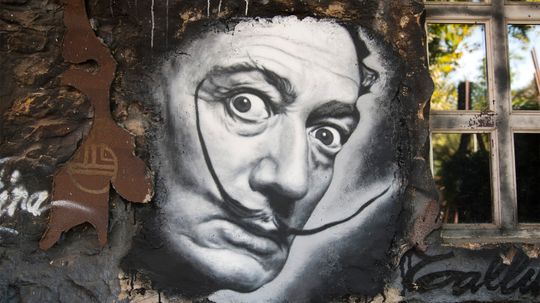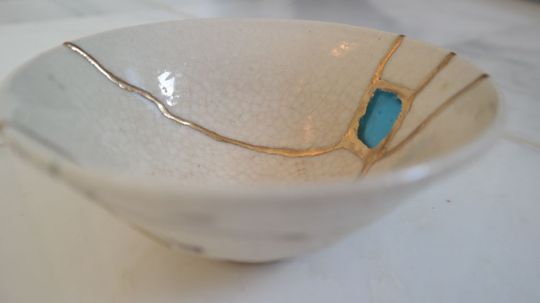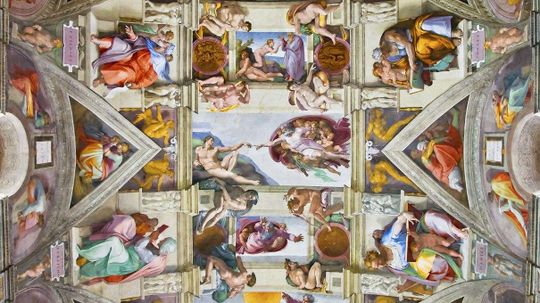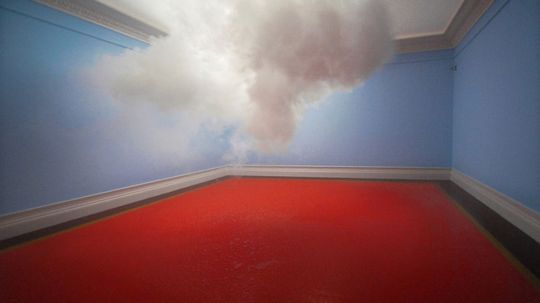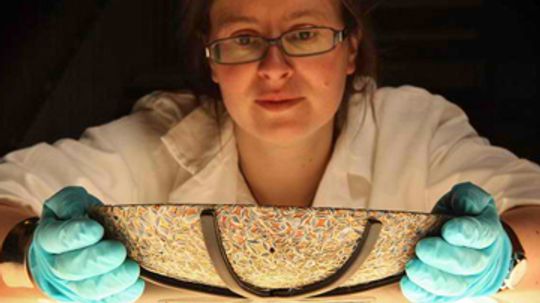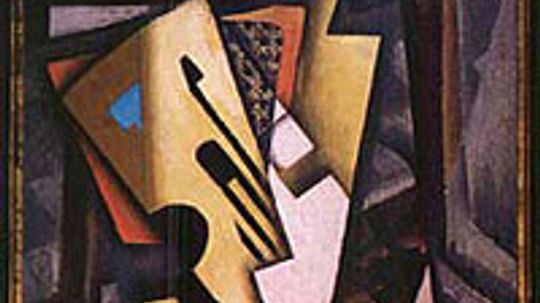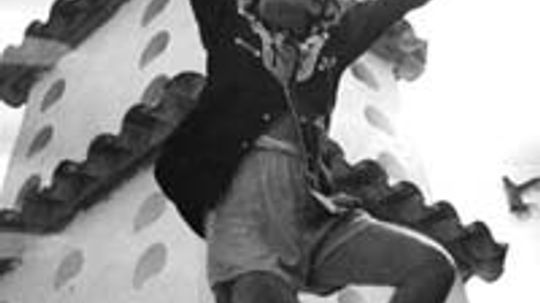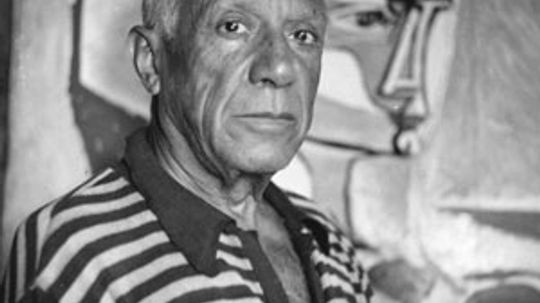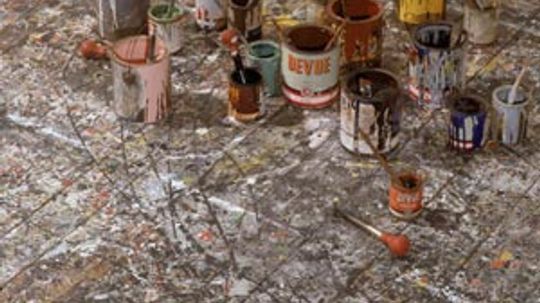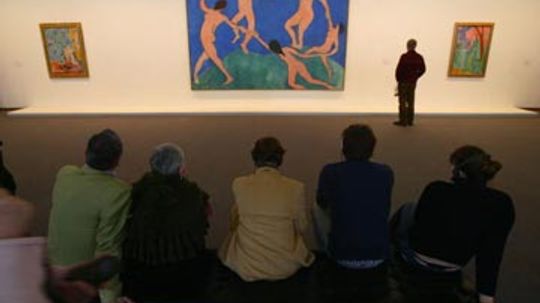Artwork
Artwork teaches us how to draw all sorts of objects, scenes and vistas where the world is your canvas and you can draw your own experiences.

Is the 'Lovely Assistant' the Real Magician?

Dear Tony Robbins, THIS Is How You Walk on Hot Coals

Ringling Bros. Retiring Elephants Early. PETA Still Not Smiling

10 Most Powerful DC Characters: A Highly Subjective List

The Most Powerful Marvel Character: 15 Strong Contenders
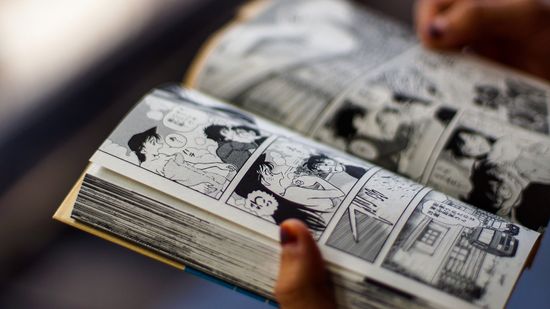
7 Manga Websites With Quality Options (Both Free and Paid)

The Scariest Books of All Time Prey on Your Insecurities

5 Types of Conflict That Make Things Interesting (For Better or Worse)

What Is Personification? All About a Common Literary Device

The Magical Art of Cambodian Shadow Puppetry Has Entertained for Centuries
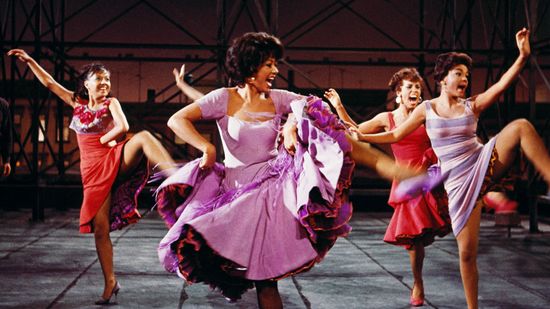
10 Groundbreaking Broadway Musicals

A High-stepping History of the Rockettes
Learn More / Page 2
Whether it's finding out the identity of the painter Banksy or wondering who is the real "Girl with a Pearl Earring," there's no shortage of mysteries and intrigue within the world of art.
Boasting "floor to ceiling views of graffiti-strewn concrete from almost every room," Banksy's Walled Off Hotel in Bethlehem welcomes visitors to the Mideast conflict with art-filled rooms under the eye of an army watchtower.
The Venus de Milo is one of the most recognized statues in all the world, but why does she have no arms?
Advertisement
It's hard to imagine, but much of the world's most beautiful art sits, rarely seen by anyone, in tax-free warehouses called freeports.
Gone are the days of peach and flesh crayons. Crayola just created 24 skin tone crayons to help advance inclusion through coloring.
Painters love to include hidden symbols and meanings inside their works, either as pointed messages to specific viewers or simply as signposts to be found by a general audience. Here are six you may have missed.
Leonardo's 'The Last Supper' has had a rough history, from flaking paint to the fact that da Vinci really didn't even want to paint it.
Advertisement
He once completed a 33-foot (10-meter) panoramic drawing of Tokyo in eight days. And he did it entirely in pen.
Just what is it that makes us unable to look away from da Vinci's Mona Lisa?
Interned during World War II, Ruth Asawa went on to create a body of iconic sculpture, numerous public commissions and a continuing legacy for young artists.
Who is the best tour guide at the newest Dalí exhibit? Salvador Dalí himself, of course.
By Loraine Fick
Advertisement
Japanese artist Yayoi Kusama's "Infinity Mirrors" exhibition
When people think of art, the first painting that pops in their mind is probably the Mona Lisa, but there are other important classical paintings. Take this quiz and find out how much you know about famous artists and their work!
Crayons are steeped in the artwork of our childhoods. So how did these incredibly popular little sticks of wax and color actually come about? And who decides the color names?
By Oisin Curran
"One can consider how we might live a kintsugi life, or 'rebirth' finding value in the cracks ... bringing to light the scars that have come from life experiences."
By Alia Hoyt
Advertisement
Is one of the world's greatest works of Renaissance art a roadmap to the human reproductive system?
By Chris Opfer
HowStuffWorks Now talks to the artists behind the wildly popular books and wonders if the future could hold an "Anarchist Coloring Book."
Can weather move indoors? Thanks to an artist from Amsterdam, yes. Learn how these works of climate art come to be, and whether you're likely to have indoor weather of your own anytime soon.
In glass blowing, artists give form to their work by blowing air into hot glass. People who practice lampworking also create art from the same stuff your windows are made from. What makes lampworking unique, and how did it get its name?
Advertisement
Millefiori, an Italian word meaning "thousand flowers," is a type of glass art that has been practiced for millennia. How have the years changed the way people make millefiori? Can you do it yourself?
Cubism represented a clear-cut, intentional break with art as visual realism. How did Pablo Picasso and Georges Braque revolutionize the way artists looked at the world?
By Julia Layton
Salvador Dali's paintings are among the most easily recognizable in the world. Oozing pocket watches, bleak expansive landscapes, erotic and grotesque nudes -- they're mind-bending exercises in subconscious exploration. But who was Dali, and how real was his eccentric life story?
Pablo Picasso was arguably the most famous visual artist of the 20th century -- he produces tens of thousands of works and even helped start a stylistic movement. What was the artist like, and how do historians define his styles?
By Julia Layton
Advertisement
One of the most well-known, and American, artists of the 20th century is undoubtedly Jackson Pollock. Even if you think of his famous "drip" technique as something so simple a child could do it, his fame has been cemented in the American consciousness.
Although people now celebrate his bright colors and abstract figures, Henri Matisse was viewed as a radical in his own time -- when he turned the art world upside down. How did a quiet man from a small town become one of the most important French painters of the 20th century?
